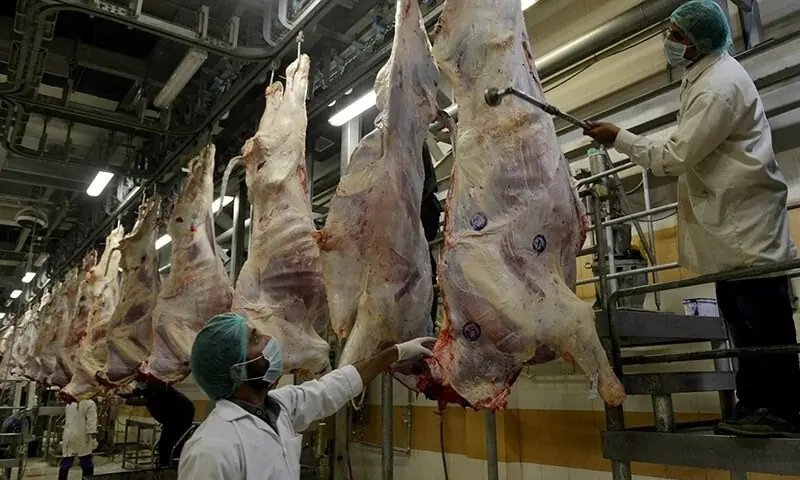Pakistan has set an ambitious target of achieving $200 million in meat exports to Malaysia, as Commerce Minister Jam Kamal Khan directed authorities to fast-track efforts to strengthen the country’s meat export sector.
Jam gave the directives while chairing the 3rd Meeting of the Committee on Pakistan-Malaysia Cooperation on meat export from Pakistan, emphasising the need to strengthen Pakistan’s meat export sector and ensure competitive pricing in the Malaysian market, read a statement on Tuesday.
“He directed the authorities to form a working group and submit a final report within a week. He also stressed that all stakeholders, including the governments of Khyber Pakhtunkhwa and Balochistan, should be consulted to achieve the target of $200 million in meat exports,” read the statement.
The meeting was attended by Federal Minister for Food Security, Rana Tanvir Hussain, and SAPM Haroon Akhtar Khan.
Pakistan’s meat exports get lift as The Organic Meat Company bags $7.5mn Chinese orders
The committee focused on reviewing strategies for meat exports to Malaysia, with particular attention to costs, competitiveness, and supply chain logistics for both buffalo and cow meat.
Officials discussed CNF (Cost & Freight) pricing, comparative cost analysis with India, and the need to maintain Pakistan’s market competitiveness while ensuring quality standards from farm to slaughterhouse.
The discussion also highlighted the importance of selecting buffaloes within the 14–18 month age group to meet Malaysia’s market requirements and addressed challenges related to market fluctuations, pricing, and incentives for private sector participants to maintain a sustainable export model.
Technical efficiency improvements at farms and slaughterhouses, including electricity costs, technology upgrades, and operational efficiency, were also reviewed to optimise production.
The committee concluded that long-term cooperation with Malaysia, supported by a combination of government assistance and active private sector engagement, is essential to reduce costs, increase production efficiency, and meet the competitive standards of the Malaysian meat market.


